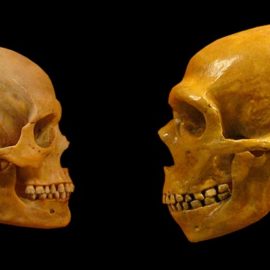
How did humans develop the ability to reflect on their past and imagine their future? What would life be like if you couldn’t remember personal experiences or think about your own feelings?
Julian Jaynes explores how the emergence of consciousness completely changed how humans experience the world. This mental shift gave our ancestors new cognitive abilities, including introspection and self-reflection, while also potentially creating a sense of separation from the world around them.
Continue reading to understand how the rise of conscious experience reshaped what it means to be human.
The Rise of Conscious Experience
The emergence of consciousness transformed the human experience. Jaynes explains that this new form of mental organization came with the ability to imagine a future and reflect on the remembered past. Conscious experience brought with it thoughts of joy, terror, hope, and ambition. Humans gained the ability to look beyond immediate sensory recognition, engage in introspection, envision possibilities, and reflect on their emotions and memories. This gave them new ways of understanding time, language, and social interactions, and it led to the emergence of experiences such as the ability to remember past experiences or think about one’s feelings.
(Shortform note: Psychologists say the ability to form episodic memories—to recollect specific experiences and events from one’s life, including details about the time and location, and the emotions and perceptions we associate with those events—plays a key role in forming autobiographical memories. Autobiographical memory—which incorporates episodic memories into a recollection of your whole life’s history—is crucial to developing a sense of identity. This ability would have given our ancestors a sense of personal history that, as Jaynes contends, was likely lacking before modern consciousness.)
While these cognitive changes brought many advantages, Jaynes also explains that there were also some downsides to the shift from the bicameral mind to consciousness. For example, the transition to conscious experience might have contributed to a sense of alienation from nature since people were able to perceive themselves, for the first time, as separate from the natural world around them.
(Shortform note: The emergence of conscious experience within specific cultural contexts, as Jaynes describes, likely has had profound effects on how we understand our place in the world. Jaynes argues that consciousness first emerged in Mesopotamia—the “cradle of civilization” in what is now Iraq—before spreading westward and influencing the development of Western thought and culture. Environmentalists argue that the worldview that emerged from this tradition has had the detrimental effect of promoting a view of humans as separate from and superior to the natural world, rather than as part of it. Some experts believe this anthropocentric view has allowed the exploitation of the environment to the point that we’re now threatened with ecological collapse.)






